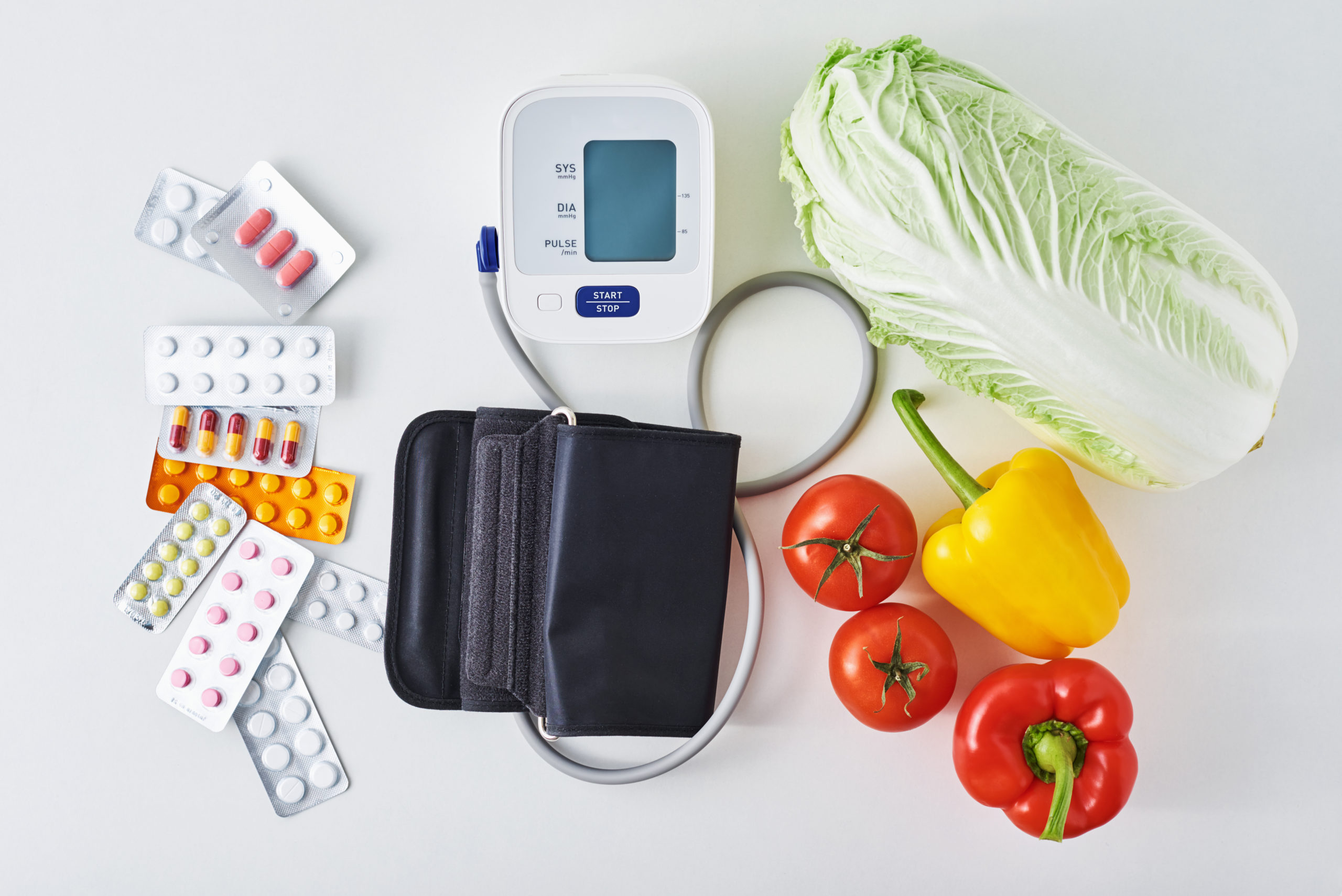
What are the Advantages of Eating Healthy Foods?
A healthy diet typically includes nutrient-dense foods from all major food groups, such as lean proteins, whole grains, healthy fats, and colorful fruits and vegetables.
Healthy eating also entails substituting more nutritious foods for those containing trans fats, added salt, and sugar.
Following a healthy diet has numerous health benefits, such as strengthening bones, protecting the heart, preventing disease, and improving mood.
This article examines the top ten benefits of a healthy diet and provides supporting evidence.
1. Cardiovascular health
Heart disease is the leading cause of death for adults in the United States, according to the Centers for Disease Control and Prevention (CDC).
According to the American Heart Association (AHA), nearly half of all adults in the United States have some form of cardiovascular disease.
High blood pressure, also known as hypertension, is becoming more of a problem in the United States. The condition can cause a heart attack, heart failure, and stroke.
According to some sources, lifestyle changes such as increased physical activity and healthy eating can prevent up to 80% of premature heart disease and stroke diagnoses.
People’s diets can help lower their blood pressure and keep their hearts healthy.
The Dietary Approaches to Stop Hypertension diet, also known as the DASH, contains various heart-healthy foods. The program suggests the following:
- Consuming a variety of vegetables, fruits, and whole grains
- Opting for fat-free or low-fat dairy products, fish, poultry, beans, nuts, and vegetable oils.
- Limiting consumption of saturated and trans fats, such as fatty meats and full-fat dairy products
- Limiting sugar-sweetened beverages and foods
- Limiting sodium intake to less than 2,300 milligrams per day — ideally, 1,500 mg per day — and increasing potassium, magnesium, and calcium consumption
High-fiber foods are also important for heart health.
According to the AHA, dietary fiber improves blood cholesterol and lowers the risk of heart disease, stroke, obesity, and type 2 diabetes.
Medical research has proven that trans fats have long been linked to heart-related illnesses such as coronary heart disease.
Limiting certain types of fats can also help your heart. Eliminating trans fats, for example, lowers levels of low-density lipoprotein cholesterol. This type of cholesterol causes plaque to build up in the arteries, raising the risk of a heart attack or stroke.
Lowering blood pressure can also benefit heart health. This can be accomplished by limiting salt intake to no more than 1,500 milligrams per day.
Many processed and fast foods contain salt, and people who want to lower their blood pressure should avoid these foods.
2. Help lower cancer risk

Antioxidant-rich foods can lower a person’s risk of developing cancer by protecting cells from damage.
The presence of free radicals in the body raises the risk of cancer, but antioxidants help remove them, lowering the risk of the disease.
Many phytochemicals found in fruits, vegetables, nuts, and legumes, such as beta-carotene, lycopene, and vitamins A, C, and E, act as antioxidants.
Though human trials are inconclusive, there are laboratory and animal studies that link certain antioxidants to a lower incidence of free radical damage due to cancer, according to the National Cancer Institute.
Antioxidant-rich foods include:
- Blueberries and raspberries are examples of berries.
- Dark green leafy vegetables
- Carrots and pumpkin
- Seeds and nuts
Obesity can increase a person’s risk of developing cancer. Maintaining a healthy weight may help to reduce these risks.
According to a 2014 study, a fruit-rich diet lowers the risk of upper gastrointestinal tract cancers.
They also discovered that a diet high in vegetables, fruits, and fiber reduces the risk of colorectal cancer, whereas a diet high in fiber lowers the risk of liver cancer.
3. Improved mood
Some evidence suggests that diet and mood are inextricably linked.
Researchers discovered in 2016 that diets with a high glycemic load may cause increased symptoms of depression and fatigue.
A high glycemic load diet contains a lot of refined carbohydrates, like those found in soft drinks, cakes, white bread, and biscuits. Glycemic load is lower in vegetables, whole fruit, and whole grains.
If a person suspects they are suffering from depression, speaking with a doctor or a mental health professional can be beneficial.
4. Better gut health
The colon is teeming with naturally occurring bacteria that play critical roles in metabolism and digestion.
Certain bacteria strains also produce vitamins K and B, which are beneficial to the colon. These strains also aid in the fight against harmful bacteria and viruses.
A low-fiber, high-sugar, high-fat diet alters the gut microbiome, increasing inflammation.
A diet high in vegetables, fruits, legumes, and whole grains, on the other hand, provides a combination of prebiotics and probiotics that aid in the growth of good bacteria in the colon.
Probiotics abound in these fermented foods:
- Yogurt
- Kimchi
- Sauerkraut
- Miso
- Kefir
Fiber is a prebiotic that is abundant in legumes, grains, fruits, and vegetables. It also encourages regular bowel movements, which can aid in the prevention of bowel cancer and diverticulitis.
5. Improved memory
A nutritious diet may aid in the maintenance of cognition and brain health.
A 2015 study discovered nutrients and foods that help prevent cognitive decline and dementia. The following were found to be beneficial by the researchers:
Vitamin D, C, and E are all important.
- fatty acids omega-3
- polyphenols and flavonoids
- fish
The Mediterranean diet is one
of several diets that include many of these nutrients.
6. Maintaining and losing weight
Maintaining a healthy weight can help lower the risk of chronic health problems. Obesity and overweight are risk factors for a variety of conditions, including:
- Cardiovascular disease
- Diabetes type 2
- Low bone density
- Some cancers
Many nutritious foods, such as vegetables, fruits, and beans, have fewer calories than most processed foods.
Several resources are available online to assist you in calculating your daily calorie requirements. The best way to do this is to make sure your daily exercise or activity level is part of the equation.
Maintaining a healthy diet free of processed foods can assist a person in staying within their daily limit without having to monitor calorie intake.
Dietary fiber is especially important for weight management. Plant-based foods are high in dietary fiber, which helps regulate hunger by making people feel fuller for more extended periods of time.
Researchers discovered in 20
18 that a diet high in fiber and lean proteins resulted in weight loss without calorie counting.
7. Managing and controlling diabetes
A person with diabetes can benefit from a healthy diet in the following ways:
- Controlling blood glucose levels
- Maintaining target blood pressure and cholesterol levels
- Preventing or postponing diabetes complications
- Maintaining a healthy weight
People with diabetes must limit their intake of foods containing added sugar and salt. They should also avoid fried foods high in saturated and trans fats.
8. Healthy bones and teeth
Diets rich in calcium and magnesium are essential for strong bones and teeth. Maintaining bone health can reduce the risk of bone problems later in life, such as osteoporosis.
Calcium-rich foods include the following:
- Dairy products with low fat
- Broccoli
- Cauliflower
- Cabbage
- Bone-in canned fish
- Tofu
- Legumes
Calcium is frequently added to cereals and plant-based milks by food manufacturers.
Magnesium is abundant in many foods, with leafy green vegetables, nuts, seeds, and whole grains being some of the best sources.
9. Improve your sleep the natural way
Several factors can disrupt your sleep, including sleep apnea.
Sleep apnea occurs when the airways become repeatedly blocked while sleeping. Obesity, alcohol consumption, and an unhealthy diet are all risk factors.
Whether or not a person has sleep apnea, reducing alcohol and caffeine consumption can help them sleep better.
10. Improving the health of generations to come
Children learn most of their health-related behaviors from the adults around them, and parents who model healthy eating and exercise habits are more likely to pass these on to their children.
Eating at home may also be beneficial. Rese
archers discovered in 2018 that children who ate meals with their families regularly consumed more vegetables and fewer sugary foods than their peers who ate at home less frequently.
Furthermore, children who garden and cook at home may be more likely to make healthy dietary and lifestyle choices.
Quick tips for a nutritious diet
There are numerous small, positive ways to improve diet, such as:
- Substituting water and herbal tea for soft drinks
- Avoiding meat for at least one day per week
- Ensuring that at least half of each meal is made up of fresh produce
- Substituting plant-based milk for cow’s milk
- Consuming whole fruits rather than juices, which contain less fiber and frequently contain added sugar
- Avoid processed meats, which are high in salt and may raise the risk of colon cancer.
- Consuming more lean protein, found in foods like eggs, tofu, fish, and nuts
Taking a cooking class and learning how to include more vegetables into meals may also be beneficial.
Summary
Healthy eating has numerous health benefits, including a lower risk of heart disease, stroke, obesity, and type 2 diabetes. It can also improve a person’s mood and give them more energy. Of course, there are many other benefits not listed in this article, like improved self-image resulting from new positive lifestyle changes. This can result in better opportunities for career advancements and relationships. In other words, these changes can significantly impact your overall well-being.
A doctor or a dietitian can advise you on how to eat a healthier diet.






